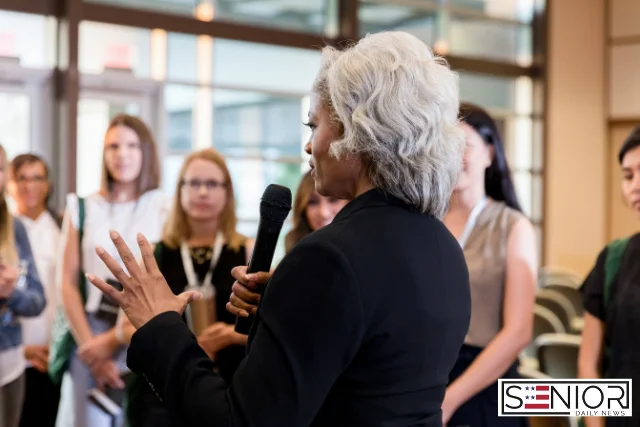From Sidewalks to Senate Floors: A Heartfelt Guide to Bold Political Engagement

In a world where decisions are increasingly made by those who show up, political engagement is no longer optional—it’s essential. From local councils to national debates, every level of government plays a role in shaping the world we live in. Whether you’re an aspiring political activist, a concerned citizen, or someone new to the process, understanding how to get involved in local politics and participate in political discourse can empower you to make a real difference.
This in-depth guide breaks down the path to effective civic participation, offering practical steps, strategies, and insights to help you influence political change at every level.
Understanding the Different Levels of Government
Before diving into how to engage, it’s important to know where your actions can make an impact:
???? Local Government (Municipal & County Councils)
Deals with zoning laws, waste management, schools, parks, and public safety.
???? State or Provincial Government
Manages transportation, education standards, healthcare policies, and more.
???? National/Federal Government
Controls defense, foreign policy, national taxation, and constitutional laws.
Knowing which level of government is responsible for which issues helps you target your efforts more effectively.
The Role of Civic Participation in Political Change
Civic participation refers to individual and collective actions designed to identify and address issues of public concern. This includes:
- Voting in elections
- Signing petitions
- Participating in peaceful protests
- Writing to legislators
- Attending city council meetings
- Volunteering for campaigns or NGOs
These acts may seem small, but collectively, they create pressure that can influence public policy and political decisions.
How to Get Involved in Local Politics
Starting locally is often the most impactful and accessible form of political engagement. Here’s how to begin:
1. Attend Local Council Meetings
Public meetings are open to residents. Show up, ask questions, and voice concerns.
2. Volunteer for Local Campaigns
Whether it’s canvassing or stuffing envelopes, campaign work builds experience and networks.
3. Run for Local Office
Don’t underestimate your potential. School boards, zoning commissions, or neighborhood associations often need fresh voices.
4. Join a Neighborhood Committee
These groups influence city planning, safety initiatives, and community projects.
Becoming visible and active in your community establishes you as a committed civic participant.
Becoming a Political Activist: What It Really Means
The term political activist often conjures images of marches and protests, but it goes far beyond that. A political activist is someone who:
- Raises awareness on political issues
- Mobilizes others toward action
- Advocates for legislative or policy change
- Challenges unjust systems
Activism can take many forms: social media campaigns, writing op-eds, organizing forums, or even starting petitions. The goal is to spark meaningful dialogue and pressure for change.
Using Social Media for Political Engagement
Social media platforms can be powerful tools for spreading awareness and organizing communities. However, it’s important to use them strategically and responsibly.
???? Tips for Effective Online Activism:
- Share credible sources
- Avoid echo chambers—engage with different perspectives
- Encourage action, not just awareness
- Use hashtags to boost visibility (#CivicParticipation, #ActForChange)
Used wisely, social media can turn local conversations into national debates and viral movements.
Political Discourse: Engaging in Respectful Conversations
One of the most underrated forms of engagement is participating in thoughtful political discourse. Whether online or in person, the way we discuss politics matters.
???? Best Practices:
- Listen more than you speak
- Stay informed from balanced news sources
- Avoid personal attacks
- Ask open-ended questions
- Focus on policies, not personalities
Engaging in respectful, fact-based conversations can bridge divides and foster collaborative problem-solving.
Influencing Policy Without Holding Office
Not everyone wants to run for office—and that’s okay. You can still influence policy in powerful ways:
- Write letters or emails to elected officials
- Participate in public comment periods for new legislation
- Organize community input sessions or town halls
- Support advocacy organizations aligned with your values
These actions signal to lawmakers that constituents are paying attention—and expecting results.
Political Activism and Grassroots Movements
Grassroots activism refers to political movements driven by ordinary citizens rather than political parties or large organizations.
Examples include:
- Environmental justice groups
- Education reform coalitions
- Racial and social equality networks
- Labor rights campaigns
Grassroots movements often influence change from the bottom up, gaining momentum as more people become involved. These efforts prove that persistent civic engagement works.
Education as a Tool for Empowerment
Understanding your rights, the political system, and current events equips you for informed engagement. Here’s how to stay educated:
- Follow local government updates and council agendas
- Enroll in online civics or policy courses
- Read widely across political spectrums
- Attend webinars, lectures, or political forums
- Subscribe to reputable newsletters or podcasts
Knowledge is the foundation of effective political activism.
Mobilizing Others: Build a Movement, Not Just a Message
Change doesn’t happen in isolation. To amplify your impact, involve others:
- Host information sessions or voter registration drives
- Collaborate with local nonprofits or community groups
- Form coalitions to address specific issues
- Share resources, petitions, and action steps on group chats or email lists
The power of collective action cannot be overstated.
Overcoming Common Barriers to Political Engagement
Many people hesitate to get involved due to:
- Lack of time
- Feeling uninformed
- Distrust in the system
- Fear of conflict or public speaking
Start small. You don’t need to be an expert or a public figure. Consistency, curiosity, and courage are more important than perfection.
The Role of Voting in Political Change
While activism is vital, voting remains one of the most direct and powerful tools for change.
- Local elections often have low turnout but massive impact
- Midterm and general elections decide national direction
- Ballot measures can shape your community’s future
Every vote matters—not just in presidential races, but in school boards, mayors, and propositions.
Conclusion: Your Voice Matters at Every Level
From the local council chambers to the halls of parliament, political engagement fuels democracy. Whether you’re just learning how to get involved in local politics or ready to join national debates, your voice, actions, and presence have the power to shape real change.
Be informed. Be involved. Be fearless.
The future doesn’t just happen—it’s built by those who show up and speak out.
Image Designed Using Canva






